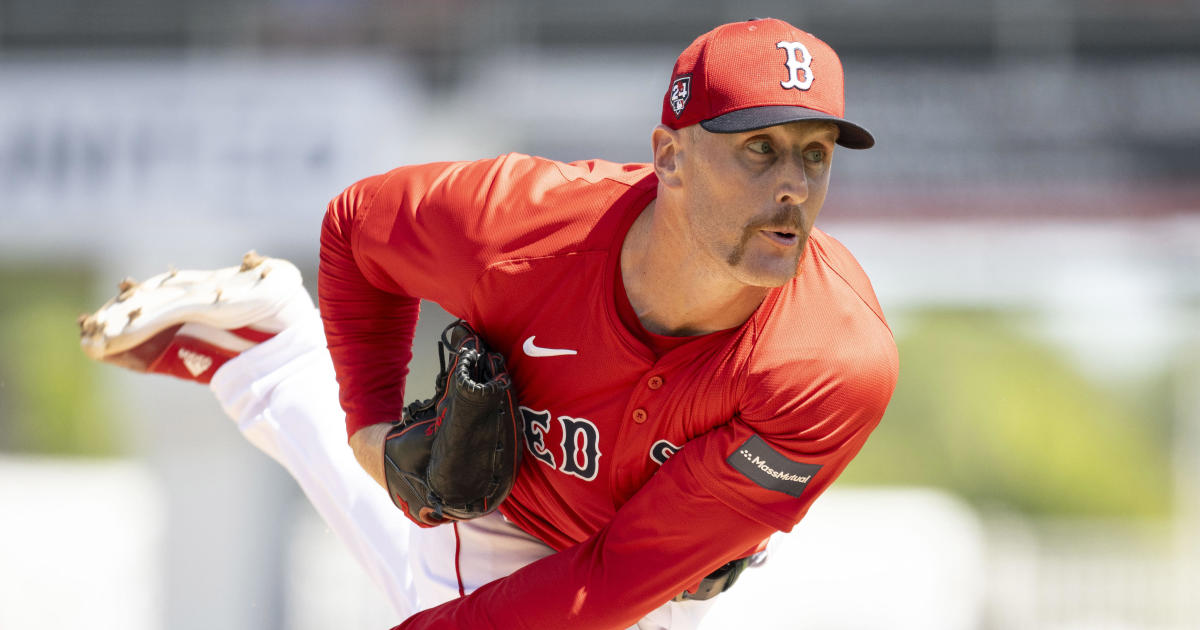MLB May Suspend A-Rod Under Labor Deal
NEW YORK (AP) — Alex Rodriguez may have to start serving a suspension as soon as it is announced rather than wait for a grievance to play out.
Major League Baseball may try to suspend A-Rod under its collective bargaining agreement instead of its drug rules, which would eliminate any chance of delaying a penalty until after the case goes to an arbitrator, The Associated Press has learned.
Rodriguez has never been disciplined for a drug offense, and a first offender under baseball's Joint Drug Agreement is entitled to an automatic stay if the players' association files a grievance — meaning the penalty is put on hold until after an arbitrator rules.
While use of banned performance-enhancing substances falls under the drug agreement, MLB may argue other alleged violations are punishable under the labor contract, a person familiar with management's deliberations told the AP, speaking on condition of anonymity because no statements were authorized.
Taking that action would prevent the New York Yankees third baseman from returning to the field, even if he recovers from a quadriceps injury cited by the team as the reason for keeping him on the disabled list.
And merely threatening to use that provision might give MLB leverage to force a deal.
The Yankees expect Rodriguez to be accused of recruiting other athletes for the clinic, of attempting to obstruct MLB's investigation, and of not being truthful with MLB in the past when he discussed his relationship with Dr. Anthony Galea, who pleaded guilty two years ago to a federal charge of bringing unapproved drugs into the United States from Canada.
Four years ago, Rodriguez admitted using PEDs while with Texas from 2001-03. He has repeatedly denied using them since.
Baseball has been investigating Rodriguez and other players since a January report in the Miami New Times alleging they received PEDs from Biogenesis of America, a closed anti-aging clinic on Florida.
"We're still involved in the process of preparing for an eventual appeal in this matter," Rodriguez's lawyer, David Cornwell, said Monday on ESPN New York Radio. "My understanding is that the next step that is going to be taken is that the players' association and baseball will meet to discuss the investigation and baseball's focus on particular players. So we'll see how that process plays out. But at this point my understanding or my expectation is that we're going to be working through the process towards an appeal."
Cornwell did not return an email seeking comment.
Aside from the drug agreement, there is no automatic stay for suspensions under baseball's labor contract. Rodriguez could be punished under Article XII (B) of the Basic Agreement, which states: "Players may be disciplined for just cause for conduct that is materially detrimental or materially prejudicial to the best interests of baseball including, but not limited to, engaging in conduct in violation of federal, state or local law."
If suspended under that section, Rodriguez would serve the penalty while a grievance is litigated before arbitrator Fredric Horowitz — unless the union asks for a stay and the arbitrator grants one, which would be unusual under the grievance procedure. And baseball could always try to punish A-Rod on drug violations later.
It would be difficult for Commissioner Bud Selig to remove the arbitrator from the process. A provision in Article XI gives the commissioner permission to rule instead of the arbitrator on a complaint "involving the preservation of the integrity of, or the maintenance of public confidence in, the game of baseball."
But a letter from Selig that is Attachment 1 states: "I understand that the players' association has expressed concern that the commissioner might take some action pursuant to Article XI (A) (1) (b) of the Basic Agreement which could negate rights of players under the new Basic Agreement. While I have difficulty seeing that this is a real problem, I am quite willing to assure the association that the commissioner will take no such action."
In addition, if Selig attempted to bypass the arbitrator, the union would have the right to reopen the labor contract with respect to that provision.
Cornwell would not respond to a report in the New York Daily News on Monday that said Selig would not pursue a lifetime ban if Rodriguez accepted a suspension through 2014.
"There's been all sorts of reports, all sorts of sources and all sorts of breaking news and breathless coverage, and I don't feel any need to respond to any of it," Cornwell told ESPN.
In announcing Ryan Braun's 65-game suspension last week, MLB cited violations of both the labor contract and drug agreement.
A person familiar with that deal, speaking on condition of anonymity because no statements were authorized, said 50 games of the penalty for the 2011 NL MVP were connected to Biogenesis. The additional 15 games stemmed from the Milwaukee outfielder's actions during the grievance that overturned his October 2011 positive test for testosterone.
Cornwell represented Braun in the 2012 hearing before arbitrator Shyam Das, but said he was not involved in Braun's agreement to be suspended.
Rodriguez, who turned 38 Saturday, has not played this season following hip surgery in January. The three-time AL MVP, fifth on the career list with 647 home runs, appeared to be on the verge of rejoining New York on July 22, but the Yankees said a day earlier that an MRI revealed a strained quadriceps.
Rodriguez pushed to be activated last Friday, but the Yankees said he wouldn't even resume a minor league injury rehabilitation assignment until Aug. 1. Rodriguez then went on a New York radio station to criticize the team's decision.
The Miami New Times story was prompted by information provided by Porter Fischer, an ex-Biogenesis employee.
"What's been made public are various documents that a disgruntled ex-employee of Biogenesis allegedly stole. I would imagine we'll spend time talking with the arbitrators about the documents and things of that nature, their authenticity, their relevancy, the reliability," Cornwell told ESPN.
Gary Smith, a spokesman for Fischer, responded in an email: "Cornwell can get in line with many others who want to attack Porter Fischer for exposing the truth and is left without support. He did it because it was the right thing to do."
Also Monday, Toronto manager John Gibbons said he thinks Blue Jays outfielder Melky Cabrera won't be penalized. Cabrera, MVP of the 2012 All-Star game, was banned for 50 games last year for a positive testosterone test while with San Francisco.
"We don't think anything's going to happen," Gibbons said. "We think, because he served his time, it's over with. I haven't given it much thought and the GM hasn't talked much about it."
___
AP Baseball Writer Janie McCauley and AP Sports Writer Tim Reynolds contributed to this report.



